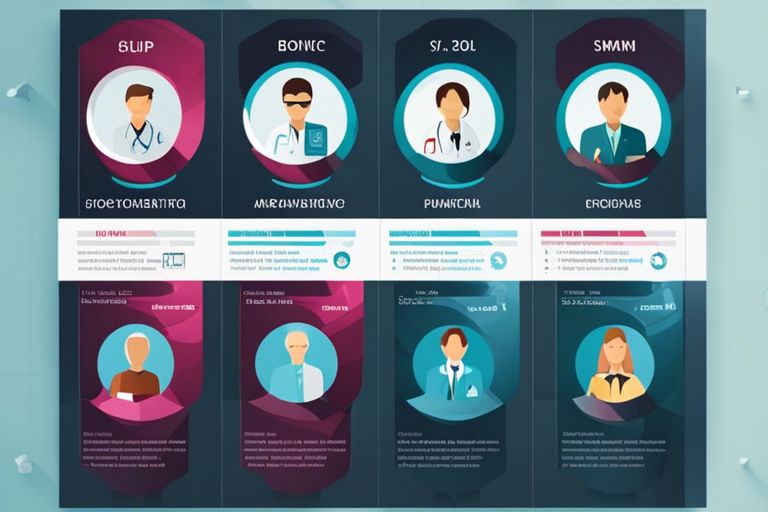The field of pain management is a crucial aspect of healthcare, with patient care at its core. Utilizing Customer Relationship Management (CRM) tools in this specialized area requires a unique approach that incorporates empathy and understanding at every touchpoint. By integrating empathy into every interaction, healthcare providers can personalize care and support for patients experiencing pain, ultimately leading to improved outcomes and patient satisfaction. In this blog post, we will explore the importance of empathy in pain management and how CRM systems can enhance the patient experience in this critical healthcare domain.

Principles of Pain Management
Understanding Pain and Its Types
Before delving into pain management strategies, it is crucial to have a comprehensive understanding of pain and its different types. Pain can be classified into two main categories: acute and chronic. Acute pain is usually short-lived and is a direct response to a specific injury or illness. On the other hand, chronic pain persists long after the initial injury has healed and can have a significant impact on an individual’s quality of life. Any effective pain management approach must take into account the type of pain being experienced and tailor interventions accordingly.
| Pain | Types |
| Acute | Short-lived, direct response to injury or illness |
| Chronic | Persists long after initial injury has healed |
| Neuropathic | Caused by damage to the nervous system |
| Psychogenic | Originates from psychological factors |
The Role of Healthcare Providers in Pain Relief
Management
Understanding the role of healthcare providers in pain relief is crucial for ensuring effective pain management. Healthcare providers play a key role in assessing and diagnosing pain, developing tailored treatment plans, and monitoring the effectiveness of interventions. They are responsible for educating patients about pain management strategies, including the use of medication, physical therapy, and psychological interventions. By working closely with patients, healthcare providers can provide holistic care that addresses the physical, emotional, and psychological aspects of pain.
CRM Fundamentals in Healthcare
The Concept of CRM in a Healthcare Context
With the increasing focus on patient-centered care, healthcare providers are adopting Customer Relationship Management (CRM) strategies to enhance patient interactions and outcomes. CRM in healthcare involves utilizing technology and data to understand patients’ needs, preferences, and behaviors, ultimately improving the quality of care delivery.
Implementing Effective CRM Strategies for Patient Care
Fundamentals of implementing effective CRM strategies for patient care require a multi-faceted approach that includes personalized communication, patient engagement, and data-driven decision-making. By leveraging CRM tools, healthcare providers can build stronger patient relationships, proactively address health concerns, and tailor treatment plans to individual needs.
Healthcare organizations can streamline processes, reduce administrative burdens, and increase patient satisfaction by incorporating CRM into their daily practices. By focusing on empathy and personalized care, CRM can revolutionize the patient experience and drive better health outcomes.
Empathy: The Heart of Patient Interactions
Defining Empathy in Healthcare
All patient interactions within the healthcare system should be imbued with empathy, which is the ability to understand and share the feelings of another. In the context of pain management and customer relationship management (CRM), empathy plays a crucial role in fostering trust, building rapport, and ultimately improving patient outcomes.
Techniques for Enhancing Empathy in Patient Communication
One crucial technique for enhancing empathy in patient communication is active listening. This involves fully concentrating on what the patient is saying, acknowledging their emotions, and providing appropriate responses. Other techniques include practicing nonverbal communication, such as maintaining eye contact and using open body language, and demonstrating genuine concern and compassion towards the patient’s pain and needs.
With a deeper understanding of the patient’s perspective and emotions, healthcare providers can tailor their communication and treatment plans to better address individual needs and concerns. Empathy is not just a soft skill but a critical component in delivering patient-centered care and promoting a positive patient experience.

Integrating Pain Management with Empathetic CRM
To Is CRM technology the customer empathy gateway for healthcare payers?
Tailoring CRM to Suit Pain Management Needs
Needs of pain management patients are unique and require a tailored approach in customer relationship management (CRM). Understanding the specific challenges faced by individuals dealing with chronic pain is crucial in developing empathetic interactions that cater to their needs.
Tools and Technologies Supporting Empathetic Interactions
Management of pain requires a comprehensive approach that goes beyond just medication. The tools and technologies integrated into CRM systems can help support empathetic interactions by providing personalized care plans, reminders for medications, and tracking of progress over time.
The utilization of artificial intelligence (AI) and machine learning algorithms can also enhance the CRM system’s ability to analyze patient data, predict pain flare-ups, and suggest proactive measures to manage pain effectively. By leveraging these tools, healthcare providers can deliver compassionate care to patients while improving overall outcomes.
Summing up
Taking this into account, incorporating empathy into every interaction within pain management and CRM is crucial for ensuring patients feel understood, supported, and valued. By fostering an environment of empathy, healthcare providers can enhance patient satisfaction, trust, and overall outcomes. Empathy can lead to better communication, increased compliance with treatment plans, and improved quality of care. Ultimately, integrating empathy into every touchpoint of the patient journey not only benefits the individual but also strengthens the healthcare system as a whole.









